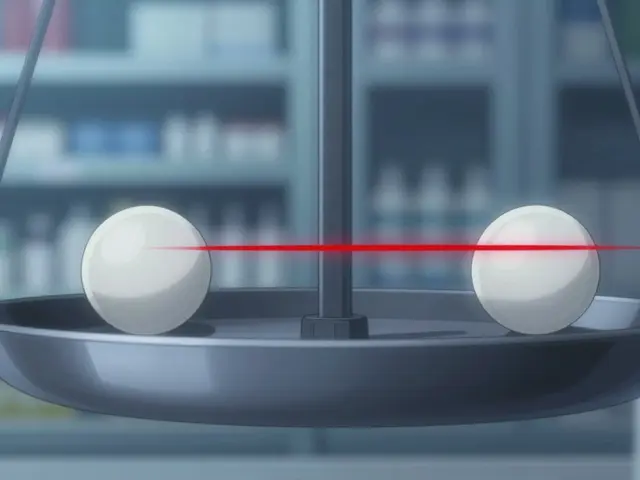Imagine a tree that could fight dandruff, heal wounds, clean your teeth, repel bugs, and maybe even manage diabetes. Sounds like a tall order, but neem has been doing all that—sometimes quietly, sometimes with a fanfare—across Southeast Asia for centuries. In India, this versatile plant is called Arishtha, or "the reliever of sickness." People don't just admire neem; they rely on it, cooking with its bitter leaves, treating skin and scalp, and even parking under its shade when the heat feels unbearable. You've probably stumbled on products that list neem oil or extract in their ingredients, from toothpaste and soaps to natural pesticides, and wondered if it's just another fad. Spoiler: the buzz is real, but neem is way older than Instagram trends.
What Makes Neem So Special?
First off, neem is more than a tree—it's medicine in bark, leaf, and oil form. The neem (Azadirachta indica) grows fast in harsh, dry climates, towering over homes and fields from West Africa to the remote villages of southern India. People have been using every part of this plant for at least 2,000 years, and records from ancient Ayurveda texts back that up. The leaves, which are bright green and incredibly bitter, are chewed for mouth health. Bark and twigs turn into makeshift toothbrushes, and the seeds are cold-pressed to get neem oil—the real MVP in the story.
Neem oil isn't just used in folk remedies. Researchers in 2023 at the Indian Institute of Technology reported that neem extract is packed with compounds like nimbin, nimbidin, and azadirachtin. These strange-sounding names matter—they stop harmful bacteria from growing, keep insects at bay, and reduce skin inflammation. It explains why neem finds itself in skin serums and bug sprays alike. It's a natural multitasker, but there's a reason it's not everywhere (yet): neem tastes bitter, and pure oil smells a bit like garlic and peanuts mashed together.
But that's no reason to skip it. Neem is one of the few traditional remedies that continues to be studied in proper labs worldwide. Multiple clinical studies have shown that neem leaf extracts can help control plaque and bacteria in the mouth. One review in 2022 even compared neem toothpaste to standard commercial brands and found it just as effective at fighting gum disease and cavities. Neem oil's antimicrobial powers are helpful for acne, too. Applied topically, the oil soothes irritated skin and reduces the bacteria that trigger breakouts—without harsh chemicals.
Neem isn’t just about what you slap on your skin or hair. Those same properties have environmental perks. Neem leaves repel mosquitoes and flies so well that in rural India, people hang them over their doorways during monsoon season. Farmers use neem cakes (the leftover pulp after oil extraction) in their fields, not just as fertilizer but to nix nematodes and bugs without resorting to synthetic pesticides. Even pet owners turn to diluted neem oil as an eco-friendly flea and tick remedy.
Don't fall into the trap of thinking "natural" means "safe for everyone, everywhere." Neem can trigger allergies, especially for people with sensitive skin or nut allergies, and ingesting neem oil, especially for young kids, is a no-go. The Centers for Disease Control and Prevention have even flagged cases where large doses caused vomiting and seizures in children. So, while your toothpaste or soap with neem is fine for most, nobody should down shots of neem oil expecting a miracle.
Still, you don’t need a PhD or a suitcase full of supplements to bring neem into your routine. You’ll find neem powders in health shops everywhere, neem soaps at ethnic grocery stores, and neem-based sprays for pets online. Always check the label. Go for products that mention "cold-pressed neem oil" directly instead of "fragrance" or "extract," and look for trustworthy certifications if you have allergies.

Neem in Daily Life: Old Traditions, Modern Solutions
Neem’s history as a go-to remedy starts right at home, long before modern medicine filled bathrooms and kitchens with bottles and tubes. In India, chewing a neem twig—called a datun—every morning is a ritual that’s older than toothbrushes; it scrapes away plaque and freshens breath at the same time. Some folks still swear by it, insisting their teeth are stronger for it. For anyone who can't stomach the thought of a twig, neem toothpastes and powders offer a modern twist. Brands like Dabur and Himalaya have made this ancient hack mainstream, mixing neem with mint and salt to cut the bitterness but keep the antibacterial punch strong.
When it comes to skin and hair, neem shows up in shampoos meant to combat dandruff, creams for eczema and ringworm, and simple oil blends that soothe itchy, oily, or acne-prone skin. In a 2021 study at the University of Nairobi, women with persistent scalp issues saw major relief after five weeks of using a neem-based shampoo—scientists believe it's the combination of antifungal and anti-inflammatory actions at work. Mix a teaspoon of neem powder with coconut oil and you get a calming face mask that doesn’t clog pores. No wonder beauty bloggers rave about the “green miracle.”
Mosquito season? Neem’s pungent scent might turn off a date, but it’ll keep bugs at bay. A couple of drops of neem oil mixed into unscented lotion works as an effective repellent—research from the Malaria Journal showed it reduced mosquito bites on exposed skin by up to 80% for several hours, rivaling some name-brand sprays. Plus, unlike DEET-based repellents, neem doesn’t leave a weird sticky residue or chemical stench. People even use neem-based sprays on pets, though always mixed heavily with carrier oil to avoid irritation. (Pro tip: never use full-strength neem oil on animals or kids.)
If you’ve got plants, neem might be your new best friend. Gardeners rely on neem oil as a pesticide because it’s less harmful to bees than traditional insecticides and breaks down quickly in soil. Whether you battle powdery mildew on your roses or mealybugs on your tomatoes, neem can handle it. To make a homemade spray, blend a teaspoon of pure neem oil with a drop of mild dish soap and water. Shake and mist over the leaves—just don’t drench the plant or use during peak sunshine hours to avoid burning the leaves.
Some experiments even point to neem as a potential ally in diabetes management. One 2022 study out of Bangalore Medical College showed that daily neem leaf extract reduced blood sugar spikes in adults with type 2 diabetes—by up to 18%. The evidence isn’t ironclad, and nobody’s suggesting ditching their doctor-prescribed meds, but neem tea or capsules might play a supportive role for some, especially in traditional diets. Always check in with your healthcare provider before adding neem supplements, particularly if you already take medication for blood sugar control.
People cook with neem in small amounts, especially in Bengali and South Indian households. The leaves are blanched, tossed with cubes of pumpkin, and eaten to "cleanse the blood" before spring festivals kick off. The bitter flavor isn’t to everyone’s taste, but it’s got a cult following among families who believe in neem’s power to prep the body for a new season. Others steep neem leaves into hot water for a fever-busting tea—strong, bitter, and reportedly helpful for easing viral infections, though the taste takes serious getting used to.
Even outside of health and hygiene, neem turns up in surprising places. Furniture makers sometimes use neem wood for cabinets because termites can’t stand it. In summer, a handful of neem leaves thrown into bathwater is an old trick to soothe heat rashes or chickenpox blisters. Some even use dried neem leaves in pantry corners to keep weevils and ants out of rice and grains, relying on the same antimicrobial compounds that protect crops outside.
Neem does have limits. It won’t cure every disease, and using too much—especially drinking concentrated neem oil or using undiluted products on skin—can cause headaches, nausea, or even liver stress over time. Young children, pregnant women, and people with known allergies should skip neem supplements unless guided by a pro. But that hasn't stopped its rise; neem's staying power speaks to its stubborn usefulness, straddling the line between tradition and trailblazing health science as the years roll by.

Smart Tips for Using Neem Safely and Effectively
If you want neem to do its thing, get the right product for the right job. Neem comes in powders, tinctures, oils, capsules, and fresh leaves. Here’s a quick run-down to help you separate hype from helpful:
- Neem oil: Always dilute before use, especially for skin or hair. Mix a few drops with carrier oils like coconut, olive, or jojoba to limit irritation. Use it as a spot treatment for acne, scalp massages, or mild fungal infections—but avoid open wounds or eyes.
- Neem powder: Great for mixing into DIY face masks or scalp scrubs. Combine with honey, yogurt, or aloe gel for a calming paste. Patch-test first to avoid breakouts.
- Neem toothpaste: Safe for most people, just check that it’s fluoride-free if you want extra gentle care. If you’re prone to canker sores, neem’s anti-inflammatory compounds can sting, so try a small amount.
- Neem leaf tea or capsules: Useful as an immune booster or reported blood sugar stabilizer. Stick to labels, starting with a low dose—no more than 300mg daily unless you’ve cleared it with your doctor.
- Neem sprays for plants and pets: Make sure they’re labeled for your chosen use. For the garden, spray leaves during cooler parts of the day, and for pets, use diluted formulas and never apply to open sores.
Keep neem oil in a cool, dark place since it goes rancid quickly, turning cloudy and losing power. Once opened, best to use within six months. Always keep neem out of reach of kids and pets. If you get neem oil on your skin and it itches or burns, wash it off right away and avoid using it undiluted in the future. Every product should list Azadirachta indica as a primary ingredient if it’s legit—anything with too many extra fragrances probably has more filler than neem.
Neem’s role in the modern wellness toolbox looks set to keep growing as the world digs deeper into natural remedies that actually work. Whether you keep it in your medicine cabinet, garden shed, or tucked inside your toiletries bag, neem’s wide range of uses is hard to ignore. Don’t expect it to solve everything, but when it comes to fighting germs, pests, and minor skin issues, few plants have served people as long or as well as neem has.






19 Comments
Jennifer Grant
July 5, 2025Neem is more than a plant, it’s a living archive of human attempts to harness nature's chemistry for survival; the ancient texts whisper about the bitter leaf as a cure, but modern science adds a layer of proof that the old ways weren’t just superstition.
When you chew a neem twig, you’re engaging in a ritual that predates the toothbrush by millennia, a practice that speaks to the continuity of human ingenuity.
The compounds nimbin, nimbidin, and azadirachtin are not just fancy names; they are biochemical agents that interrupt bacterial replication and insect life cycles.
In a 2023 study from IIT, researchers isolated these molecules and demonstrated a measurable decrease in pathogenic colonies on cultured skin cells.
Such data bridges the gap between folklore and pharmacology, showing that the bitter taste, while off‑putting, is a signal of potent bioactivity.
The bitter alkaloids deter herbivores, but for us, they may deter the microbes that cause acne and gum disease.
It’s fascinating how a single tree can produce a spectrum of effects-from antifungal to anti‑inflammatory-simply by varying which part of the plant you use.
Leaves become a mouthwash, bark becomes a toothbrush, seeds become oil that doubles as pesticide and skin remedy.
Even the leftover cake after oil extraction serves as a fertilizer that suppresses nematodes, showcasing a closed‑loop agricultural model.
All this points to a systems‑thinking approach that our modern, single‑purpose chemicals lack.
What truly impresses me is the resilience of neem; it thrives in arid soils where most crops fail, a testament to evolutionary adaptation.
As climate change forces us to rethink crop selection, neem’s drought‑tolerance makes it a candidate for future agro‑ecosystems.
Of course, the tree is not a panacea; the same compounds that kill pests can irritate sensitive skin, and ingestion in large doses can be toxic, especially for children.
Regulatory bodies like the CDC have documented cases of nausea and seizures when neem oil is misused, underscoring the need for proper dosing.
In short, neem is a versatile, evidence‑backed ally in the fight against microbes, pests, and even some metabolic disorders, provided we respect its potency and use it wisely.
Kenneth Mendez
July 15, 2025Look, the mainstream media won’t tell you this but neem oil is being pushed by the global elites to keep us docile with fake "natural" cures while they feed us chemicals in our water.
They say it’s "eco‑friendly" but it’s just another distraction from the real agenda of controlling our food supply.
If you read between the lines, you’ll see the same corporate names behind the toothpaste and the pesticide, all trying to lock us into a single brand ecosystem.
Gabe Crisp
July 25, 2025Neem isn’t a miracle cure, but it does have legit antimicrobial properties.
Paul Bedrule
August 4, 2025From a pseudo‑philosophical standpoint, neem operates as a phytochemical consilience node, integrating ontological paradigms of traditional Ayurvedic praxis with epistemic frameworks of contemporary pharmacognosy.
The biochemical ontology of azadirachtin functions as a molecular sentinel, modulating ecdysone pathways in insects while concurrently exerting cytostatic effects on keratinocyte proliferation.
In translational research contexts, this duality underscores the necessity of interdisciplinary schema to fully elucidate neem’s multimodal mechanisms.
yash Soni
August 14, 2025Wow, you really think the government is giving away free health miracles? Nah, just a sneaky way to keep us all dependent on a single product line, lol.
Emily Jozefowicz
August 24, 2025Oh sure, because nothing says "I care about your skin" like a bitter leaf that tastes like regret.
But hey, if you enjoy the taste of humility, go ahead and slather that neem oil on everything.
Franklin Romanowski
September 3, 2025I appreciate how neem offers a natural alternative for many minor ailments, especially when you’re looking for something gentle yet effective.
Just remember to start with a low concentration and patch‑test, because even the best‑intended remedies can be a bit harsh on sensitive skin.
Brett Coombs
September 13, 2025Yeah, right, because the only thing more trustworthy than a corporate‑sponsored product is a random comment on the internet.
Take it with a grain of salt, mate.
John Hoffmann
September 23, 2025Note: "Neem oil" should be labeled as "cold‑pressed" and free of synthetic fragrances. Verify the ingredient list for "Azadirachta indica" as the primary component.
Shane matthews
October 3, 2025The key is to look for certifications like USDA Organic or ISO 9001 to ensure product purity.
Rushikesh Mhetre
October 12, 2025Hey folks! 🌿 If you’re new to neem, start with a diluted mix-just a few drops in a carrier oil.
It’ll keep your skin happy and bugs away-trust me, it works great for pets too!!
Sharath Babu Srinivas
October 22, 2025Grammar check: "Neem oil" is a noun phrase; ensure proper capitalization. 👍😊
Halid A.
November 1, 2025Given the peer‑reviewed literature on neem’s antimicrobial effects, it would be prudent for clinicians to consider it as an adjunct therapy where appropriate, while remaining cognizant of its contraindications.
Brandon Burt
November 11, 2025Honestly, the whole "miracle" hype is overblown-yes, neem has benefits, but it’s not going to replace conventional medicine overnight; still, the evidence is solid enough to warrant a place in the toolbox, especially for skin issues in mild forms.
Gloria Reyes Najera
November 21, 2025U cant just trust any old neem product-most are just scented oil with a sprinkle of real extract, dont forget to read the label!!
Gauri Omar
December 1, 2025Listen up! If you’re not using neem, you’re basically shouting “I hate my skin” to the universe-grab that powder, mix it with coconut oil, and quit whining about acne!
Willy garcia
December 11, 2025When you’re experimenting with neem, remember it’s a supplement-not a silver bullet. Start small, track how you feel, and adjust as needed.
zaza oglu
December 21, 2025✨🌱 Neem is a powerhouse! Use it in skincare, gardening, or even as a natural repellent-just don’t overdo it, or you’ll be dealing with irritation.
Vaibhav Sai
December 31, 2025Great post! For anyone diving in, I’d recommend checking out the USDA‑approved neem oil for pest control-works wonders on aphids without harming beneficial insects.